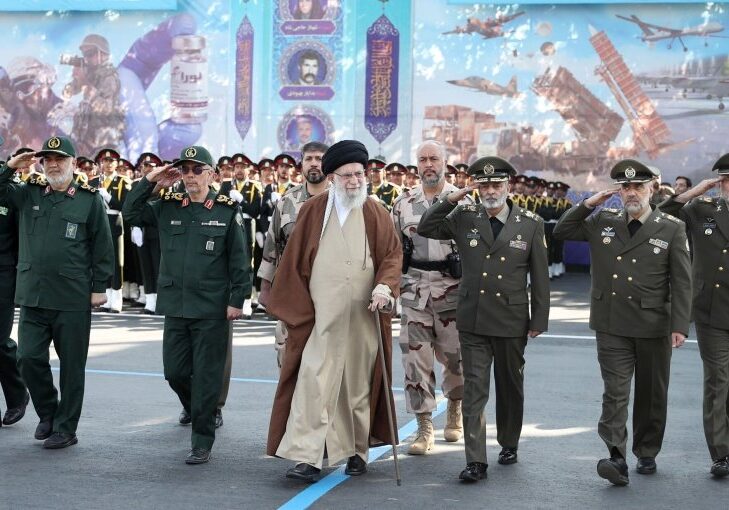Australia/Israel Review
Media Microscope: Poor Resolution
Nov 24, 2008 | Jamie Hyams
Jamie Hyams
Every year, the United Nations General Assembly considers a slate of anti-Israel resolutions. To the undying discredit of the world body, these are always all passed with overwhelming majorities. They do nothing for peace, and indeed contribute to the continuation of the conflict, because in attributing all blame to Israel they only encourage Palestinian intransigence. Australia, especially in the past few years, has distinguished itself by being one of the few countries sufficiently principled to vote against many of these motions.
However, recently Australia voted in favour of two motions it had opposed or abstained on over the previous few years. We had abstained from a resolution calling on Israel to recognise the applicability of the Fourth Geneva Convention to the West Bank. This resolution ignores the fact that, by law, the Convention does not apply, and implies that Israel does not apply the Convention, when it actually does apply its humanitarian elements voluntarily. The resolution is also one-sided in that it does not require Palestinians to apply the Convention.
The other resolution, which we had previously voted against, demands that Israel observe its Roadmap obligation to cease settlement building, but is silent on Palestinian Roadmap obligations, such as dismantling the terror infrastructure.
However, for Age diplomatic editor Daniel Flitton in the November 14 edition, this change by the government was cause for congratulation as “another bad policy went by the wayside last weekend.” He showed a lack of understanding of the true nature of the series of resolutions, describing them as “broadly demanding Israel fairly treat the Palestinians.”
Of our previous votes against the resolution applying the Geneva Convention, Flitton wrote, “Remarkably, this meant Australia abstained from a call for Israel, the occupying power, to abide by the Geneva Convention for the protection of civilians, leaving us in pretty miserable company.” I would not have thought voting with the US puts us in more “miserable company” than voting with all of the world’s most repressive dictatorships.
For Flitton, however, the change in policy was “the right approach. Australia can be a friend to Israel and at the same time firmly impress upon Tel Aviv the need to abide by international standards.” Someone needs to firmly impress on Mr. Flitton that Israel’s capital is Jerusalem, and Israel actually does abide by international standards, against a foe that clearly does not. Flitton concluded, approvingly, that “Australia has added its voice to the world majority, demanding Israel and the Palestinians make a genuine effort towards peace.” Given that these resolutions demand absolutely nothing of the Palestinians, it is hard to see how he came to this conclusion.
If Flitton was pleased, Michael Shaik, activist for the Palestinian cause, was positively exultant when interviewed by Michelle Aleksandrovics for the SBS Radio program “Worldview” on November 10. Shaik described this as a “good start”, and the Howard Government’s principled stance as “extremist”. He said, “Traditionally Australia has been a big supporter of human rights around the world, but you can’t support human rights selectively, you can’t say that you support human rights in places like Burma, Zimbabwe or Sudan and you don’t support them for Palestinians, and the same goes for the Geneva Conventions and other issues relating to international law.” Of course, it’s ludicrous to compare anything Israel does with what’s going on in Burma, Zimbabwe or especially Sudan, but for Shaik, it appears, no comparison is too ridiculous.
Shaik then claimed that voting against the two resolutions “undermines Australia’s international reputation” and that Australia had done so “purely because of domestic political considerations, namely that the Prime Minister want[ed] to maintain good relations with the Israel lobby in Australia.” Apparently Shaik can’t conceive that Mr. Howard just accepted the justice of Israel’s cause. Asked about the request by what Aleksandrovics called the “Jewish lobby” for consultation, Shaik replied, that “instead of consulting and getting the approval of people who are actively agents of a foreign country like the Israel lobby is in Australia, Australia has to look to its own foreign policy interests first.”
Some good traditional antisemitic canards there by Shaik, but it is especially rich for him to be accusing anyone else of being agents of foreign interests, given that he is the Australian representative of the International Solidarity Movement (ISM). The ISM is an organisation set up and run by West Bank Palestinians specifically to advance their cause through propaganda activities and has in the past sheltered terrorists.
On the same program, Rebecca Lewis interviewed Executive Council of Australian Jewry President Robert Goot, but her questions were far more challenging than those directed at Shaik.
Tags: Australasia






